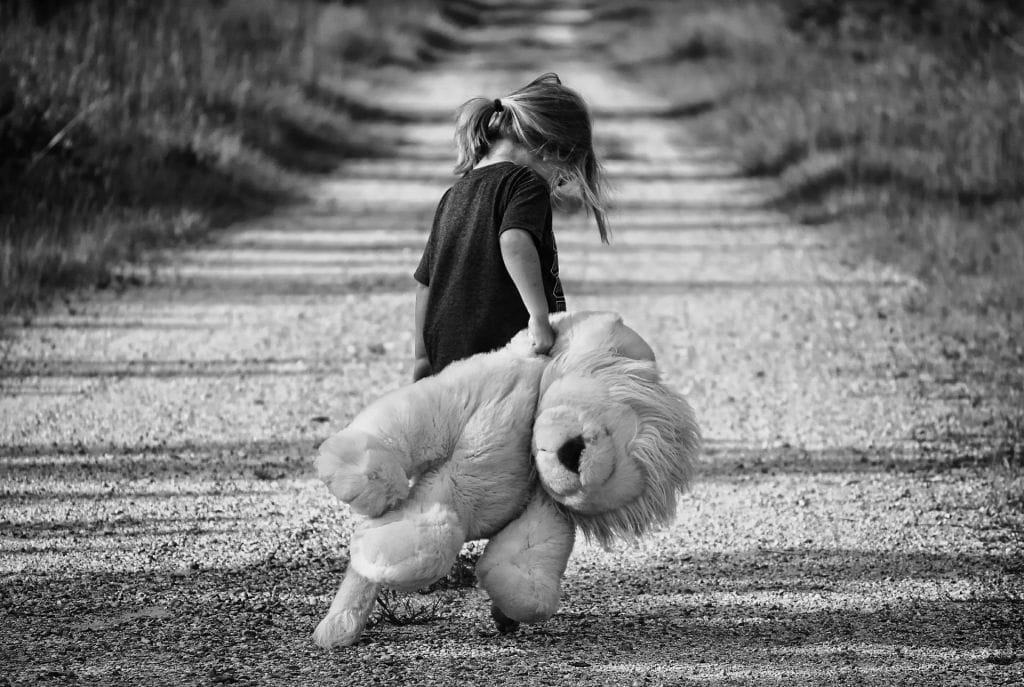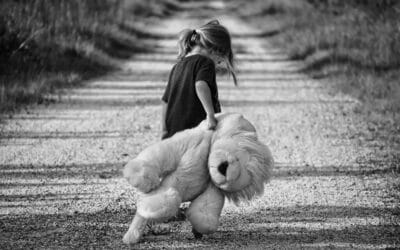I have always struggled with taking on too much responsibility. But in the last few years, I have been learning to set stronger emotional boundaries with the people in my life. Or rather, with myself.
I used to be a rescuer, while also seeking people who would rescue me. Increasingly I recognised these relationships were not healthy. As my fear of abandonment lessened and my need to be needed eased, I started to consider whether I liked people instead, whether I even wanted them in my life, and to what extent.
I let go of some old friendships and was much warier starting new ones. I stopped diving right in, seeing ‘rescuing’ as a way to quickly and deeply be valued, without really considering the consequences. And most importantly, I stopped feeling responsible for rescuing. Not my circus, not my monkeys.
I had some pretty nasty experiences to get to that point, feeling responsible for perpetual victims. I had to make things okay for them, even if it was at my own expense, even if they didn’t want to be rescued. Trying to help people exit toxic and abusive relationships, I found repeatedly that I was leading horses to water who refused to drink. It became a source of anxiety and pain (and a trigger for my own earlier experiences), and when I started losing sleep and having flashbacks, I was forced to step away.

As new people have entered my life, I have been able to maintain better boundaries, no longer stepping in to ‘rescue’. I can listen, I can support, but I no longer feel responsible. Nor do I take it personally when someone doesn’t accept the support I offer.
Working as a therapist under the guidance of a great supervisor has certainly helped. I have learned to guide and support others without owning other people’s choices. At the end of the day, I can’t live their lives for them, nor would it be appropriate for me to do so.
In my line of work, I also have to carefully monitor my own emotional workload, attending to my well-being and my capacity to effectively support others. This is my job and my responsibility. Taking on board new acquaintances’ and casual friends’ life choices are not. The reality is, outside of my work, I just don’t have the capacity to take on other people’s baggage, and certainly not for free!
I have been feeling pretty good about this lately. I choose not to enter certain conversations, not to cultivate certain relationships, and I’m comfortable with that. It’s very clear to me that I am not responsible. I don’t need to take responsibility on to feel validated and wanted, to feel like I’m okay. My value and self-worth are not tied up in rescuing people like they once were.
More recently, however, I have recognised an entire element of ‘rescuing’ I hadn’t been aware I was undertaking. Not emotional rescuing, but task rescuing. Organisational rescuing.
This is a pattern I see all the time with clients. One person taking on the cognitive load, the task completion load, the everything load for someone who seems incapable or unwilling to take on – or who is simply unaware of – what needs to be done.

In my experience, it’s not always something that can be unravelled easily, because it’s not just a matter of task redistribution and compromise, it’s not even about reallocating responsibility (though all of this is necessary). It’s about identifying and reconciling the need it serves for the rescuer.
Often the rescuer is unable or unwilling to let go, to stand back, and allow the other person to step up. If I am no longer needed, what value do I provide? They may sabotage the other person’s efforts in unconscious ways, criticising, belittling, or otherwise preventing organisational responsibility and task completion.
Maybe they don’t know how else to connect, to be valued, believing they have nothing else to offer. Perhaps they’re trying to make up for some perceived defect or deficit. Maybe they fear being rejected, devalued, abandoned, abused, judged. Or maybe they fear that the consequences of the tasks not being performed will fall on them, so there is a sense of powerlessness, of necessity, to step in and take on that load.
These patterns are typically formed in childhood. They are coping mechanisms, adaptive to the home environment. The child learns to rescue, to take on responsibility, as a way to be seen, to be valued, to avoid anger, to maintain control, or out of necessity, because if they don’t do these things, no one will.
This is a pattern I have only just recognised in myself. I have known I have a tendency to say yes too much, to overcommit – back in school, I was the one who would complete the group assignments for everyone else – but I never understood why, never made the connection to the child in me who was perfectly groomed to take on more than her fair share.
When someone asks something of me, that little girl who was often left out, excluded, lights up. Someone WANTS to include me! And if I say no, what if they don’t ask again? What if I’m overlooked, left out, abandoned?
Some of it is also about ego – it feels good to be valued and appreciated. Forever feeling unseen, the little girl in me wonders, What if this is an opportunity to shine?
And then there’s the part that fears what happens when something isn’t done or done properly. What if I’m the one left picking up the pieces?
Sometimes it’s one of these things; sometimes it’s all three.
Recently I have been consciously trying to stay in my lane, to not pick up additional responsibility. But things slip through the cracks.
In the case that has triggered this self-examination, I have tried not to step in, but when the person who is actually responsible has failed to step up, I’ve been left picking up the pieces. In brainstorming ways to shift those consequences back where they belong, or at least mitigate them and limit what lands on me, my insecurities around not being wanted have been triggered. What if I push back, set a boundary, and I’m the one who misses out, who’s left with nothing?

I pivot from righteous anger to desperate fear. Suddenly I’m back in primary school, playing on the monkey bars long after all the other kids have been picked up, waiting for the tell tale sound of Mum’s car brakes. What if she’s forgotten me? What if she never shows up? What if I’m left alone in that playground forever?
Then I’m back waiting for Mum to be ready to take us to school and I’m frightened of being late again, of getting into trouble. Flash forward and I’m walking myself to school because it’s less stressful than waiting for Mum to get organised. I have to keep on top of permission slips, of making sure I have everything I need each day. And there I am, sitting alone on the classroom steps, so fearful of being late that I’ve arrived an hour early.
Flash forward again. I’m not yet a teenager, working out which buses can take me from school to basketball because now Mum’s working and can’t take me anymore. It seems like forever, waiting, hoping it’s the right bus, that I make my connection, and I’m scared, I don’t want to get lost or miss my game.
Then I’m older still, grown-up but still living at home, finishing my degree. My boyfriend has been kicked out of home. Stay at my place, I tell him. We’ll sort something out.
I’m looking at rentals, I’m getting a job, even though I have another year of study to finish my honours – that will have to wait. I get us a place, organise the lease, get a second job. I’m doing the housework, taking care of the bills, setting up bank accounts, doing the laundry, and the dishes. My studies slip away. We’re committed to this lease. I can’t quit my job now.
My boyfriend is only working part time, and on his days off he says he’s bored, so he drives to my work to have lunch with me. I get home and the house is a mess. I take leave to get things organised because someone has to.
Fast forward and we have a mortgage. I’m still working full time. I never did that honours year. I’m disappointed, even ashamed of where I’ve ended up. Eventually, I go back to do postgraduate study, something entirely different, but only after an existential crisis.
Working full time, studying part time, I’m still taking care of the bills, the housework, his laundry, everything. Because if I don’t the power will get cut off, we won’t have a roof over our heads, the phone will get disconnected, the dishes and laundry will pile up. I am drowning.

He is bored. Resentful of me for pursuing my studies, my passions, all the while not recognising I’m suffocating in this hollow job, trying to squeeze everything else around the edges. There’s never enough time. Yet he’s on the PlayStation, guilt-tripping me for cleaning because I’m making him feel bad just by showing up to do the things he’s not.
We lived like this for a decade. Years on, I blamed him for leaving everything to me, for being seemingly incapable of doing anything for himself. I blamed his mother for kicking him out in the first place. I blamed everybody else but me.
I never recognised that his mum kicked him out for a damn good reason. Instead of letting him learn that lesson, instead of letting him pick up the pieces, I did it for him. I gave up my home, my future, my career, and my self, to take care of him. I believed he wasn’t capable, and if I didn’t do those things, the consequences would fall onto me. It would be our power, our bank balance, our telephone, our stinky, grimy house. Yet all those things I did for him I CHOSE TO DO.
He never asked me but I did them anyway.
Reflecting back, I can question whether I did it for fear of losing him, for fear of him finding his own way and not needing me, but ultimately I did it because I didn’t even recognise I had a choice.
I didn’t see any other way. That I could have set a boundary, that I could have protected myself and limited the impacts on me. That I could have left that responsibility firmly with him. That it never belonged to me.
I see now I was primed for this. I learned from an early age the only way to not get into trouble, to not miss out, to be okay, was to take responsibility even when that responsibility was not mine.
Now, at 45, I’m doing it again, taking on responsibility without being asked. Fearful of the consequences, fearful of being unwanted, unable to simply stand back and let someone else fail. Feeling like ‘no’ isn’t even an option.
When I think back to my partner, all I wanted in return was for us to be okay, for him to appreciate and thank me. We had a roof over our heads, the bills were paid and the house was clean, but he never appreciated or thanked me. Ultimately he resented and then abandoned me.
And when he did it was a relief.
So now as I grapple with how to be okay with letting someone else fail, with setting boundaries and saying no, with implementing strategies to limit the impact on me, even if it means missing out, slipping into the background, forgotten on the playground, I need to remind myself of that relief.
Because it’s not my responsibility. Not my circus. Not my monkeys. It’s not even a reflection of me, my capabilities, or my value. It’s just stuff that may or may not get done, that may get done poorly. Now I just have to find a way to be okay with that.



